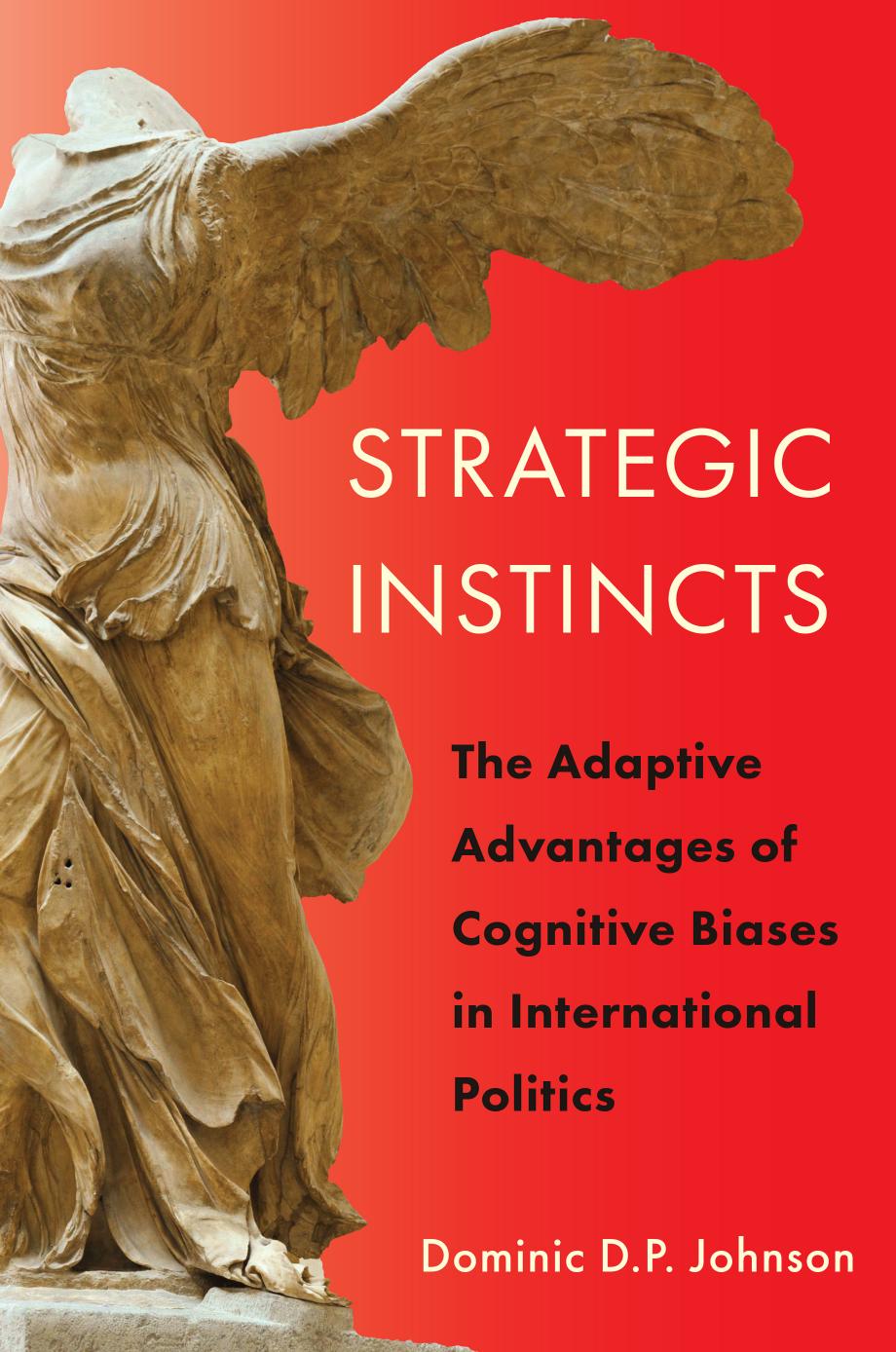Strategic Instincts: The Adaptive Advantages of Cognitive Biases in International Politics by Dominic D. P. Johnson

Author:Dominic D. P. Johnson [Johnson, Dominic D. P.]
Language: eng
Format: epub, pdf
Tags: International Relations, Psychology, Social Psychology, History & Theory, Cognitive Psychology & Cognition, Political Science, General
ISBN: 9780691185606
Google: cVvWDwAAQBAJ
Goodreads: 53215345
Publisher: Princeton University Press
Published: 2020-09-08T00:00:00+00:00
IN-GROUP/OUT-GROUP BIAS HELPS OFFENSIVE ACTION
As Europe fell in 1940, lonely Britain might have conceded to Hitler had it not been for a somewhat irrational boldness in the nation linking arms to face what Churchill promised would only be âblood, toil, tears, and sweat,â refusing to submit to the despised Nazis and their demonical leader. Rallying support for the daunting war effort and calling up soldiers to the front would have proved harder to achieve if people had behaved like dispassionate rational actorsâseeing the human beings of other nations identically to their own. Luckily for Britain, they did not. Instead, the British believed they were inherently righteous and the Nazis were inherently evil. Many of them also believed that although Germany was strong and Britain was weak, they would nevertheless win. The in-group/out-group bias may generate a distortion of the quality and capabilities of oneâs own group over another, but sometimes this can be an essential ingredient of motivation and survival.
Psychologists Ervin Staub and Daniel Bar-Tal identified an âethos of conflictâ that arises among societies in times of war, which âpromotes devotion to the society and country, rationalizes harming the enemy, and encourages readiness for personal sacrifice.â114 While it can have nasty effects and âfuels the conflict and violence,â they also note that, even or especially in apparently impossible situations, it can facilitate âbetter adaptationâ to conflict.115 In difficult times, in other words, the in-group/out-group bias can help. This may be especially the case for soldiers on the front line.
A famous study by S. L. A. Marshall, published in 1947, claimed that only 15â25 percent of infantry in World War II ever fired their weapons.116 This remarkable claim has attracted great scrutiny. Frederic Smoler, for example, argued that the study itself was flawed and the figures are highly misleading.117 But even if a massive exaggeration, it points to an underlying and widely recognized âproblemâ that many soldiersâespecially civilian conscriptsâare unwilling or at least uneager to kill. Indeed, they have to be trained to do it. Military psychologist Dave Grossmanâs book On Killing: The Psychological Cost of Learning to Kill in War and Society details the pressures facing soldiers who are socialized in normal life not to harm or kill and then asked to do exactly this in war.118 Even for those who overcome these barriers and do manage to kill, they often suffer psychological costs that leave them with nagging guilt, regret, or trauma after the fighting is over. Post-traumatic stress disorder (PTSD), for example, afflicted around 30 percent of Vietnam War veterans and 11â20 percent of veterans of the 2003 Iraq War and the subsequent occupation.119 Whatever the figures and mechanisms involved, it is widely recognized that it is not easy to harm or kill other human beings. However, it is easier to commit such acts against out-group enemies that you have come to hate rather than in-group members that you have come to value, especially when done as part of a strongly bonded group tasked with the same bloody duty.
Download
Strategic Instincts: The Adaptive Advantages of Cognitive Biases in International Politics by Dominic D. P. Johnson.pdf
This site does not store any files on its server. We only index and link to content provided by other sites. Please contact the content providers to delete copyright contents if any and email us, we'll remove relevant links or contents immediately.
The Art of Thinking Clearly by Rolf Dobelli(10457)
Mindhunter: Inside the FBI's Elite Serial Crime Unit by John E. Douglas & Mark Olshaker(9324)
Change Your Questions, Change Your Life by Marilee Adams(7762)
Nudge - Improving Decisions about Health, Wealth, and Happiness by Thaler Sunstein(7694)
Mastermind: How to Think Like Sherlock Holmes by Maria Konnikova(7324)
The Power of Now: A Guide to Spiritual Enlightenment by Eckhart Tolle(5761)
Men In Love by Nancy Friday(5234)
Altered Sensations by David Pantalony(5094)
Factfulness: Ten Reasons We're Wrong About the World – and Why Things Are Better Than You Think by Hans Rosling(4737)
The Confidence Code by Katty Kay(4251)
Thinking in Bets by Annie Duke(4218)
Man and His Symbols by Carl Gustav Jung(4131)
The Worm at the Core by Sheldon Solomon(3486)
Why Buddhism is True by Robert Wright(3447)
Liar's Poker by Michael Lewis(3442)
Three Women by Lisa Taddeo(3425)
The Inner Life of Animals by Peter Wohlleben(3311)
Descartes' Error by Antonio Damasio(3271)
How Music Works by David Byrne(3262)
